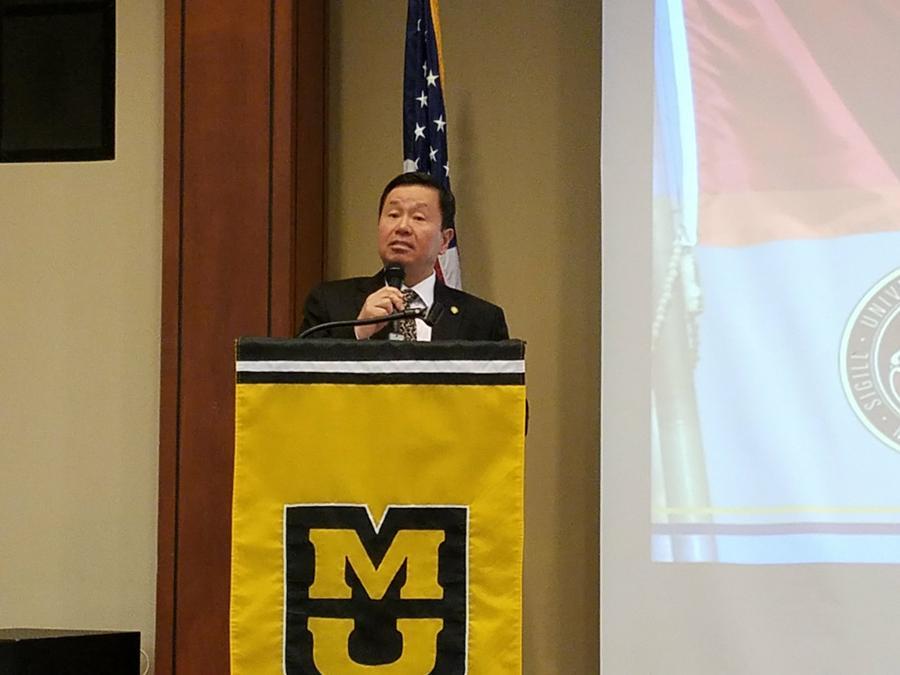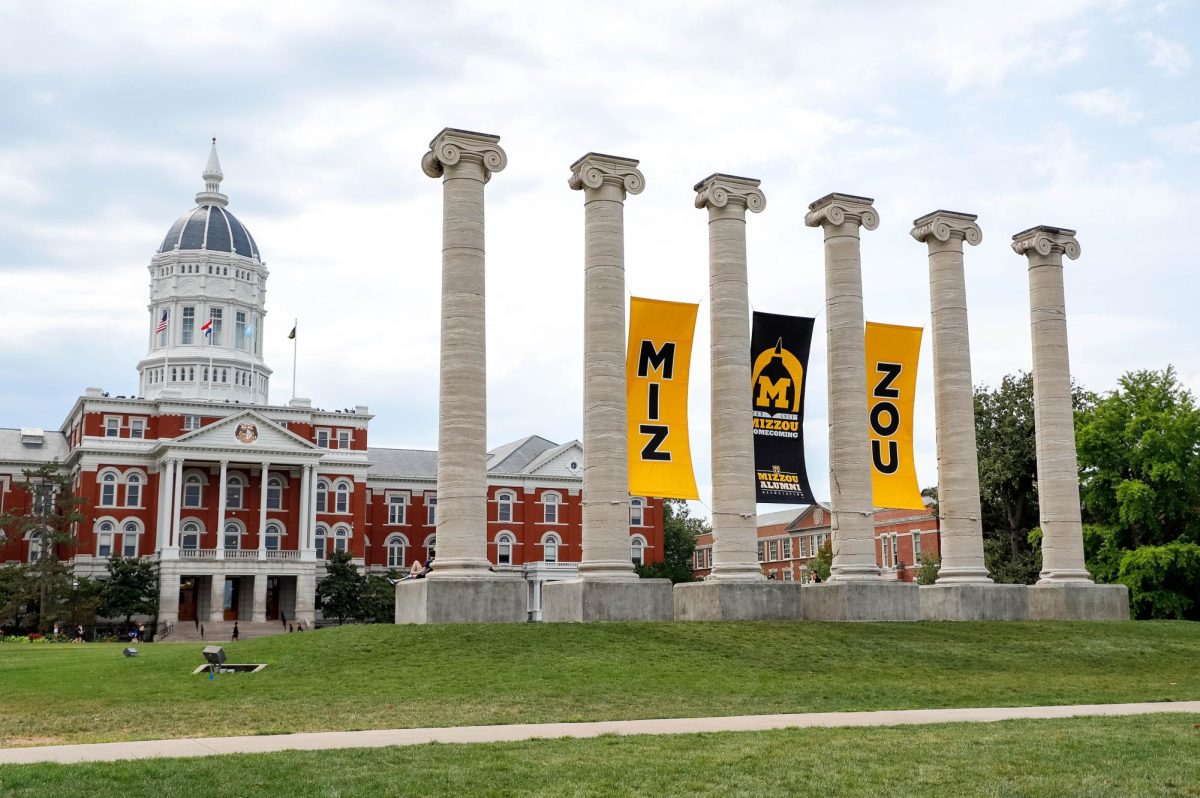At a special faculty meeting Wednesday, UM System President Mun Choi spoke to staff about his plan to deal with the recent state budget cuts and improve the university.
“I am from the system, and I am here to help,” Choi told the approximately 100 faculty members at the meeting, which was held in Memorial Union’s Wrench Auditorium.
Choi, the former provost of the University of Connecticut, was introduced by council Chairman Ben Trachtenberg. Trachtenberg addressed the fact that MU has been going through an “exciting time.”
“Not exactly what I signed up for, but an exciting time nonetheless,” Trachtenberg said.
He acknowledged that within the past 16 months, the UM System lost its president and MU lost its chancellor, dean of education, athletics director and half the board of curators, among others.
Choi said the system’s current strategic plan, to “leverage system resources to support campus unique strengths, foster campus/system collaboration and best practices for effective and efficient resources use, and advocate for higher education and UM” is good, but he wants to do better, so he outlined five principles for a new plan.
He said he plans to “place the highest emphasis on excellence, invest in faculty research and scholarship, invest in student success and outcomes, invest in programs that promote inclusive diversity and educational pipeline, and [come up with] new and reallocated resources to support [the] plan.”
Choi talked about increasing graduation rate, faculty diversity and scholarships for students from families of lower socioeconomic classes.
“We need more scholarships,” Choi said. “We need to make an investment.”
Choi said MU faculty members need to work together to grow community outreach and engagement. He said if MU had done more of this before the series of protests in November 2015, the university would have had more support in its aftermath.
“If the relationship to the community was stronger, people would have supported us through our issues,” Choi said. “Instead, they lost faith in us. We need to build a support mechanism through the state.”
Choi also talked about increasing resources for graduate and doctoral students. He said the university needs to work to recruit “outstanding graduate students” and place those students at top programs throughout the country to enhance MU’s reputation. He also talked about “pipeline programs” that would prepare students for professorship.
“We are an economic powerhouse to the state,” Choi said.
Choi said government assistance to the university has steadily dropped from 62 percent in 2000 to 35 percent in 2016.
“I don’t see us ever bumping back up to 50 or 60 percent,” he said. “We’re going to be facing fiscal challenges because there’s a limiting tax base and we’re competing with programs such as Medicaid and K-12 education.”
Choi mentioned the state’s [recent $37 million cut to higher education](https://www.themaneater.com/stories/2017/2/7/greitens-announces-cuts-um-system-2018-fiscal-year/).
“It’s not rosy,” he said. “But I know [MU interim Chancellor] Hank [Foley] is very resilient. Thank you for your leadership. We’re going to get through this in a way that’s consultative.”
Choi said the UM System would theoretically have to get rid of the engineering program, worth about $17 million, two and a half times to accommodate the current state cut.
“We’re not going to do that,” Choi said. “We have to demonstrate that we can control our own destiny to some degree. We need to make a compelling case about why we’re a worthy investment to the state.”
In a question-and-answer portion after Choi’s talk, engineering professor Galen Suppes said that about a year ago, the MU faculty received notice that a lot of their health benefits were going to be taken away. He said it had an impact of around $200,000 on himself and many others.
“A few weeks ago, we found out that at the same time that this was happening to us, the upper administration was receiving incentive bonuses,” Suppes said. “I recognize that you doing away with the incentive bonuses addresses a symptom, but there is a disease here. What are you doing about the disease?”
Suppes said the disease was “an attitude where [university administration] will inflict so much monetary harm to all of us and at the same time put more money in their pockets. That’s the disease … we take the hits, and the administration continues to serve themselves.”
Choi said this was a board-approved policy and that the administration receiving these benefits weren’t at fault. He said these were policies that were already in place by the board. Choi said he was committed to moving forward in a transparent way.
Psychological sciences professor Dr. Jeffrey Rouder said the overwhelming impression he had over the past few years was that “faculty doesn’t feel that administration has their backs.”
“We feel broadly as if we’re liabilities,” Rouder said. “People don’t come out and say ‘our faculty is doing a wonderful job.’ I think people who teach diversity courses are always afraid of being sniped at by the legislature … we feel like we have a bullseye on our back because of the cultural climate we’re in. And we haven’t felt like we’ve received the support in a visceral way.”
Choi said this was an important comment and that going forward, the administration is going to make decisions that benefit faculty and students, “the most important constituents at the university.”
“Give us the opportunity to demonstrate that,” Choi said.
_Edited by Kyle LaHucik | [email protected]_








